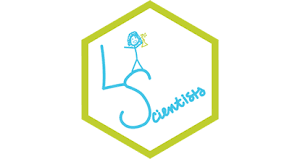Geography teacher traveling to Koreas to extend learning
This summer, Advanced Placement Human Geography (APHUG) teacher, Traci Lake will fly to Seoul, South Korea, for a conference to learn more about the Korean Peninsula and how it can be applied in the classroom. She was selected as a delegate to participate in a geography education conference and field study.
The event is sponsored by the Northeast Asian History Foundation and is an all expenses paid trip to Seoul.
The trip will include a one day conference where topics such as geospatial technology in the classroom, geographical naming disputes and how current events can be used to teach about the Korean Peninsula in the classroom will be discussed by delegates from America, Europe and Korea.
There were 14 delegates that were chosen from the United States, three from Europe and an unknown number of Korean delegates participating.
Lake said, “Getting to collaborate with other teachers who teach this course is what I’m really looking forward to. It’ll be interesting to hear other perspectives from people of different locations and cultures and not just from American teachers.”
The opportunity to be a part of this conference was first made known to Lake in mid-January. “I’m in a Facebook group of other APHUG teachers, and another teacher shared it there. They had gone on it in the past, and they said it was a really great professional development opportunity,” Lake said.
The application process included a six-to-eight-page paper about a topic of Lake’s choosing that she would present about at the conference. She chose to talk about the use of geospatial technologies in the classroom.
Geospatial technologies include Geographic Information Systems (GIS), which captures, stores and analyzes geographic data and Global Positioning Systems or GPS that helps to pinpoint the exact location of something on the Earth.
Lake said that the using geospatial technologies was very important to her. “The visualisation of data is huge for helping students to see patterns across space. Anytime I can apply that in my class, I like to,” she said.
Examples of geospatial technologies that have been used are story maps, which layer data and provide explanations as to why what is being shown is significant.
The conference is not the only thing that Lake will be doing in South Korea. She will also be travelling around the city for field studies. These will include visiting industrial and agricultural sites, the Demilitarized Zone (DMZ), which is the border between North and South Korea, and the city of Seoul in general.
“I’ve been doing a little research into the city itself and what I want to do with my extra time there as I’ll be there a few days ahead of time,” Lake said. “They’re paying for our flight to and from Seoul, but we could pick the dates that we fly, so I’m going a few days early and meeting another teacher there, and we’re just going to explore the city.”
Lake will be staying for two nights in a traditional Korean home called a hanok.
Lake said a huge part of this trip is getting to experience a new culture. “Experiencing a different culture and how I can use that to connect to relevant topics in the classroom is exciting.”
The DMZ between North and South Korea has become a sort of tourist attraction for people to come and visit the border.
Lake said, “I’m excited to go to the DMZ. I’m just intrigued by how they’ve set it up to be a tourist destination despite the conflict that could potentially erupt there really at any time. I’m excited and a little nervous, but how many people can say they’ve been to the border of North Korea?”








You must be logged in to post a comment Login